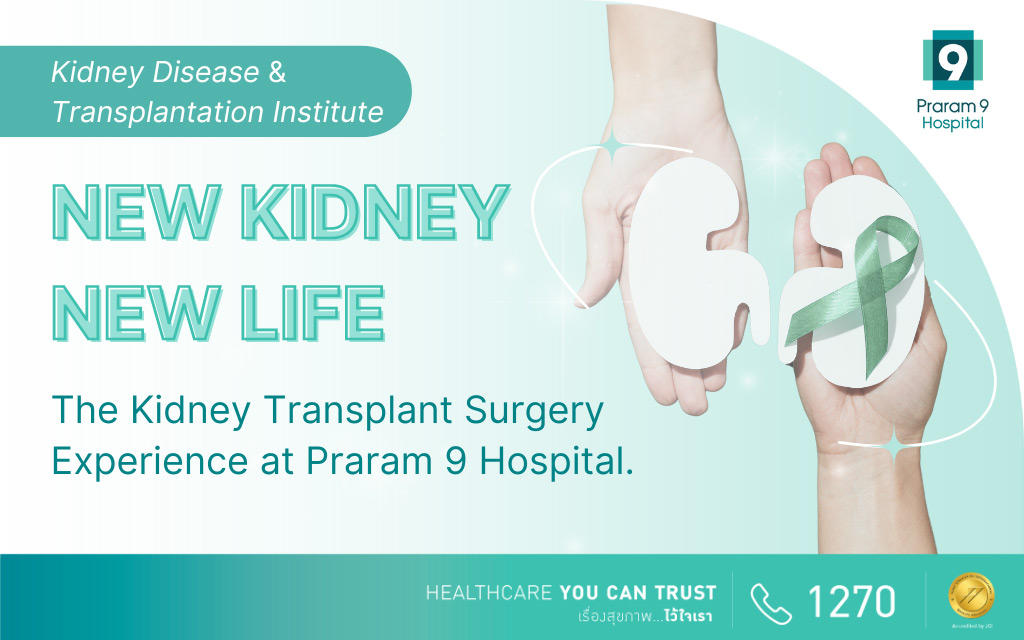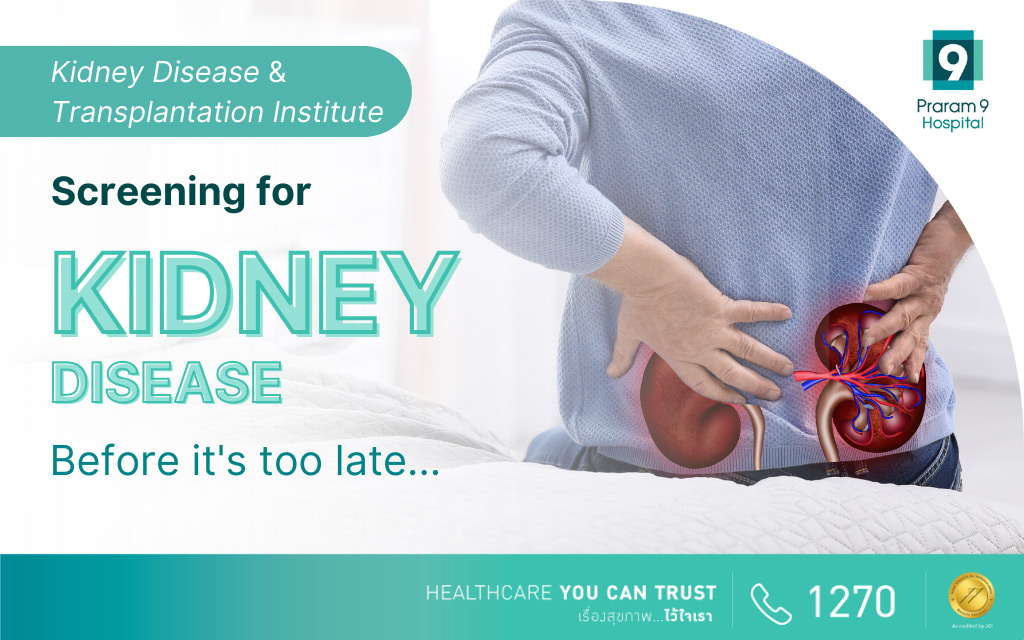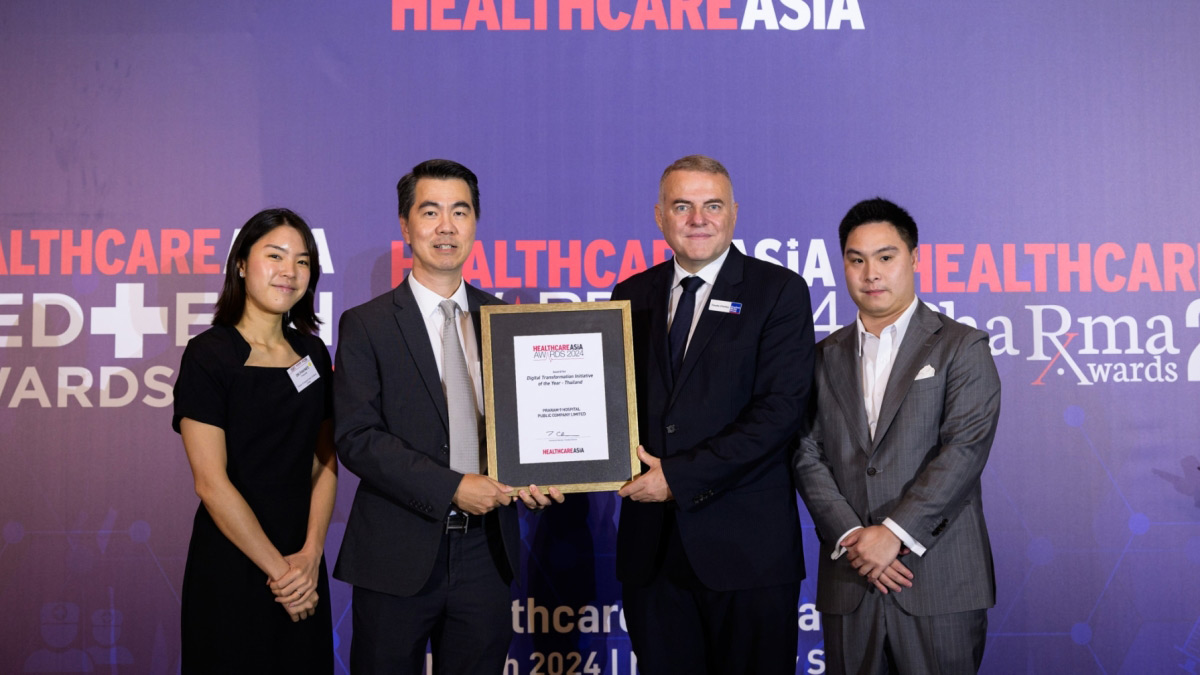Credit: hospitalmanagementasia
We are featured in Hospital Management Asia!
In this article, we explore the concept of digitalization and wellness innovation as the future of patient-centred care.
As one of the leading hospitals in Thailand, we are constantly striving to improve, in order to provide the best care possible for our patients.
Dr Marcus Ng of Praram 9 Hospital shares about the hospital’s efforts to move towards a patient-centred approach, and disease prevention over cure.
“Healthcare is moving away from a paternalistic relationship between physician and patient, to a more patient-centred approach,” said Dr Marcus Ng, International Physician at Thailand’s Praram 9 Hospital. “Future trends in healthcare technology would aim to empower patients in order to provide them as much accurate information as possible, as efficiently as possible.”
A leading private hospital in Thailand, Praram 9 has set its sights on becoming a digital hospital that leverages on technology to provide the autonomy that today’s patients seek. One example of this is the 9Care telemedicine platform, built in-house by the hospital’s internal team. All of the hospital’s doctors are on board, meaning patients can choose to video-consult doctors across any specialties, at their preferred timings.
In Thailand, foreign visitors may serve their quarantine at hospital facilities under the Alternative Hospital Quarantine (AHQ) policy. 9Care has come in handy for the hospital to monitor patients during their quarantine. Medical tourists can receive their intended consultation and treatment via the platform, without having to first finish the whole of their quarantine duration.
The hospital is also testing remote monitoring devices, such as one that allows for accurate monitoring of cardiovascular conditions. This is coupled with constant ongoing efforts to update its Electronic Medical Records system to integrate the newly adopted technologies. “Telehealth technology with a focus on remote monitoring devices, or increased ease of access to medical records, will help increase patient education and ownership of health,” said Dr Ng.
The value of telehealth during COVID-19
Besides its role in enabling patient autonomy, telehealth has played a critical role during the pandemic. Patients have the option to consult from home and request for medications to be delivered to their doorstep. By reducing the amount of physical contact, hospitals can also mitigate the risk of infection and ensure safety of its staff. Digitalisation of processes have helped to cut down on time-consuming or manual processes, allowing precious manpower resources to be redistributed to more urgent tasks.
However, Dr Ng cautioned that amidst the rapid technological advancements, there is a need to take note of the digital divide – for example, the elderly may have difficulty adapting to such new technologies and devices, whereas the less privileged may not have the required hardware or internet access. “Having the best telemedicine app equipped with the best functions does not automatically ensure quality service,” he noted. “Poor internet or hardware from the patient’s side may more likely than not, lead to a stressful attempt at a virtual consultation.” As such, hospitals need to make sure that patients with restricted digital access do not get left behind.
With the higher use of technology, comes the need to ensure data privacy, safe storage, and cybersecurity. Healthcare IT departments are always on their guard against the latest tricks up the sleeves of cybercriminals. “With the fast pace of technological advancements, it is a challenge for our hospital to ensure that there is continuous evolution of our IT system and team,” Dr Ng said.
Moving from cure to prevention
The future of healthcare is also about moving from cure to prevention. The current pandemic has shifted this into focus: COVID-19 patients with underlying lifestyle diseases such as diabetes have seen poorer outcomes.
Such lifestyle diseases require a multi-disciplinary approach comprising of coaching, education, and traditional treatment, said Dr Ng. With this in mind, Praram 9 Hospital opened its first wellness centre FIX & FIT in November 2020, offering services such as fitness assessment, pain management and physical conditioning. These are targeted at patient profiles ranging from office workers who lead sedentary lifestyles to athletes who may suffer from chronic pain. Such proactive management of health – even for minor symptoms such as an aching shoulder from hours of computer work – can help to avoid more serious medical conditions developing down the road.
The shift to a patient-centred model, and holistic care beyond medically recognised conditions, are trends that are set to stay in the current healthcare landscape. Hospitals will benefit from constantly reinventing their offerings, to meet patient needs and expectations that have evolved rapidly with the times.







